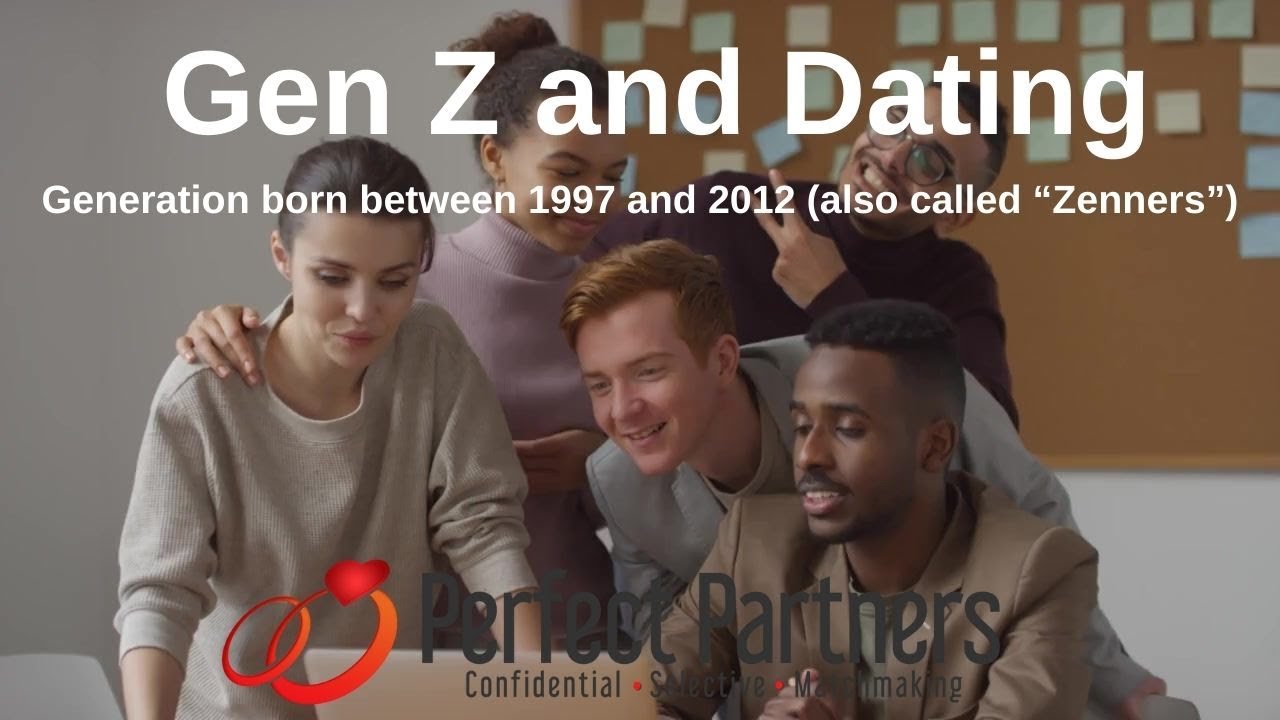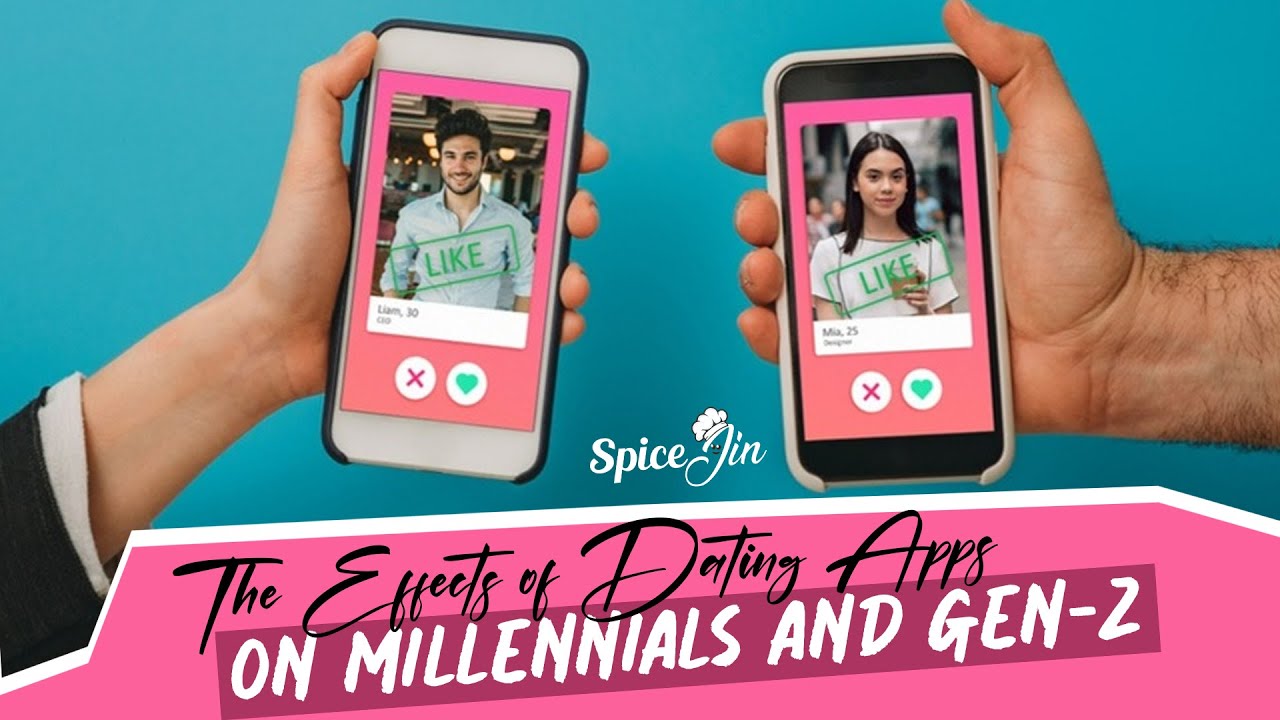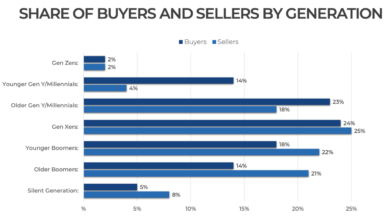
Gen Z Dating Pay Etiquette Navigating the New Rules
Gen Z dating pay etiquette is a fascinating exploration of how this generation approaches financial responsibilities in relationships. From early dating stages to shared expenses, gift-giving, and even the role of social media, Gen Z is redefining how couples manage finances. This deep dive will explore the unspoken rules, common attitudes, and technological influences shaping modern dating norms.
This guide offers a comprehensive look at Gen Z’s unique approach to dating finances. We’ll dissect the expectations around splitting costs, gift-giving, and the influence of social media, providing real-world examples and actionable insights for navigating the complexities of Gen Z relationships.
Defining Gen Z Dating Norms

Gen Z, the generation born between roughly 1997 and 2012, is navigating the complexities of dating in a digital age unlike any previous generation. Their dating rituals, influenced heavily by social media and instant communication, often differ significantly from those of their predecessors. This exploration delves into the defining characteristics of Gen Z dating, examining the impact of technology and contrasting their practices with earlier generations.Gen Z’s dating landscape is shaped by a unique blend of traditional values and the rapid evolution of technology.
Their experiences and expectations regarding relationships are significantly influenced by the constant connectivity and information overload of the digital world. This has led to both advantages and challenges in their dating lives, particularly concerning communication styles, expectations, and relationship structures.
Gen Z Dating Customs
Gen Z dating customs are characterized by a strong emphasis on digital communication and social media presence. Direct physical interaction, while still valued, is often preceded by extensive online communication. Gen Z frequently uses dating apps and social media platforms to connect, vet, and engage with potential partners. They prioritize authenticity and genuine connections, often valuing open communication and shared values over traditional courtship rituals.
Common Dating Rituals Among Gen Z
Gen Z dating often begins with extensive online communication, using platforms like dating apps, social media, and text messaging. This initial stage allows for potential partners to assess compatibility and interests without immediate pressure for physical interaction. Shared experiences, often organized through social media groups or events, are increasingly important in fostering connection. Gen Z also frequently values inclusivity and diverse relationships, embracing non-traditional relationship structures and open communication about their needs and expectations.
Differences Between Gen Z and Previous Generations’ Dating Habits
Gen Z’s dating practices differ significantly from those of previous generations. Millennials, for example, often relied more heavily on traditional meeting places and shared activities. Gen X prioritized face-to-face interactions and a more structured approach to dating. Gen Z, on the other hand, utilizes a diverse range of digital tools to connect and build relationships.
The Role of Technology in Shaping Gen Z Dating Norms
Technology plays a pivotal role in shaping Gen Z dating norms. Dating apps, social media platforms, and instant messaging have become integral components of the dating process. These tools enable quick connections, facilitate communication, and provide avenues for self-expression. They allow individuals to showcase their personalities and interests to a wider audience, creating a more dynamic and diverse dating pool.
Gen Z dating pay etiquette is definitely a thing, and it’s fascinating how it’s evolving. Navigating who pays for what, especially in the early stages, is tricky. For example, with the rising cost of living, and especially for young people like those renting in trendy neighborhoods like Williamsburg, Brooklyn, or even those in Kiev, Ukraine, renters williamsburg brooklyn kiev ukraine face unique financial pressures.
It all boils down to clear communication and mutual respect, which is key for any healthy relationship dynamic, regardless of the situation.
The prevalence of online profiles and digital interactions often precede and inform initial face-to-face encounters.
Comparison of Gen Z Dating to Previous Generations
| Feature | Gen Z | Millennials | Gen X |
|---|---|---|---|
| Initial Contact | Primarily online (apps, social media) | Combination of online and offline (social events, mutual friends) | Primarily offline (social gatherings, introductions) |
| Communication Style | Direct, often informal, frequent use of emojis and abbreviations | More formal and structured, but evolving | More reserved and indirect |
| Relationship Expectations | Open communication, inclusivity, diverse relationship structures | Emphasis on commitment and stability | Focus on individual independence, less emphasis on formal commitment |
| Role of Technology | Central to the entire dating process | Growing role, but less integral than for Gen Z | Limited role in dating |
Financial Expectations in Dating: Gen Z Dating Pay Etiquette

Gen Z is redefining the landscape of dating, and financial expectations are a significant part of this shift. Unlike previous generations, Gen Z often prioritizes shared experiences and values over traditional notions of gift-giving or who foots the bill. Understanding these evolving norms is crucial for navigating the complexities of modern relationships.
Early Dating Stage Financial Responsibilities
Gen Z often emphasizes shared responsibility from the outset of a relationship. This doesn’t mean they expect equal financial contribution for every date, but rather a sense of shared effort and understanding when it comes to expenses. They are less likely to adhere to the traditional model where one person consistently pays for everything.
Expectations Around Splitting Costs for Dates and Activities
Gen Z generally prefers splitting costs for dates and activities. This isn’t necessarily a rigid rule, but rather a preference for fairness and equality in shared experiences. The specifics can vary depending on the context and relationship dynamics, but the underlying principle is often about shared responsibility.
Common Attitudes Toward Gift-Giving in Gen Z Relationships
Gen Z demonstrates a more nuanced approach to gift-giving. While thoughtful gestures are appreciated, the focus is often on experiences over material possessions. Small tokens of affection are common, but extravagant gifts are less frequent and not always expected.
Prevalence of Shared Expenses in Gen Z Relationships
Shared expenses are becoming increasingly common in Gen Z relationships. Rent, utilities, groceries, and entertainment costs are frequently discussed and potentially shared. This is driven by a desire for financial transparency and mutual support.
Examples of Different Ways Gen Z Couples Manage Shared Finances
Gen Z couples employ various strategies to manage shared finances. Some may use joint bank accounts for shared expenses, while others maintain separate accounts but agree on a system for splitting costs. Others may opt for budgeting apps to track and manage their finances together. Open communication and transparency are key components in these arrangements.
Gen Z dating pay etiquette is definitely a conversation starter, but it’s also interesting to consider how these financial dynamics play out in bigger life decisions, like those surrounding family planning. For example, navigating the complexities of Alabama’s laws regarding frozen embryos and potential future children alabama frozen embryos children raises some intriguing questions about shared responsibility and expectations in relationships.
Ultimately, open communication and clear agreements are key, regardless of the specific situation, whether it’s dating, family planning, or other life choices.
Typical Financial Expectations in Various Dating Phases
| Dating Phase | Financial Expectations |
|---|---|
| Early Dating (First few months) | Sharing costs for dates, activities; casual gift-giving; initial exploration of financial values and habits. |
| Mid-Relationship (6-12 months) | Increased frequency of shared activities; clearer understanding of financial contributions; more formal discussions about shared expenses (rent, utilities). |
| Serious Relationship (1+ years) | Joint accounts and shared financial goals; potential for long-term financial planning; more substantial gift-giving. |
Dating App Etiquette
Gen Z navigates the digital dating landscape with a unique set of expectations and communication styles. Understanding these nuances is crucial for navigating the complexities of modern relationships and fostering positive interactions on dating apps. Gen Z’s approach to dating apps reflects their overall digital-first mindset, emphasizing efficiency and clear communication.Gen Z’s dating app experience is heavily influenced by their comfort with technology and their preference for direct and concise communication.
They’re often less tolerant of ambiguity and expect a more streamlined approach to connecting and interacting. This digital-native perspective shapes their expectations for communication, both in terms of initial contact and ongoing interactions.
Common Dating App Etiquette Rules for Gen Z
Gen Z’s approach to dating app etiquette emphasizes efficiency and clarity. They prefer concise communication, quick responses, and a clear understanding of intentions. They value authenticity and transparency, and often appreciate directness over subtlety. This focus on efficiency stems from their busy schedules and preference for focused interactions.
- Be upfront about your intentions. Gen Z values honesty and clarity. Avoid ambiguity in your initial messages. State your interests and expectations early on to avoid misunderstandings.
- Respond promptly. Gen Z values efficiency. A delayed response can be perceived as disinterest or lack of effort. Aim for a timely response, ideally within 24 hours.
- Be genuine. Gen Z appreciates authenticity. Avoid overly crafted profiles or insincere messages. Let your personality shine through.
- Use clear and concise language. Gen Z prefers direct communication. Avoid jargon or overly complex language. Be straightforward and easy to understand.
Gen Z Communication on Dating Apps
Gen Z uses dating apps as a tool for initial connection, often prioritizing quick assessment of potential matches. Their communication style is characterized by brevity and efficiency, reflecting their preference for concise exchanges. Emojis and memes are frequently used to convey tone and personality, while direct questions are often used to assess compatibility.
Gen Z dating pay etiquette is definitely a hot topic right now, with so many differing opinions. While navigating these modern dating dynamics, it’s important to consider the broader global context, such as the recent Biden-Israel-Hamas cease fire negotiations. This complex situation highlights the ripple effects of global events on personal relationships and financial responsibility in dating.
Ultimately, clear communication and mutual respect are key to ensuring a fair and enjoyable experience for everyone involved, regardless of the backdrop of global affairs.
- Direct communication is favored. Gen Z often uses direct questions and statements to assess compatibility and avoid ambiguity.
- Emojis and memes are common. These visual cues are used to add personality and tone to messages, enhancing communication and engagement.
- Short, concise messages are preferred. Gen Z values efficiency and avoids lengthy, drawn-out conversations in the initial stages of interaction.
- Active listening is important. Gen Z values genuine engagement and shows interest by responding to messages and asking follow-up questions.
Comparison to Previous Generations
Gen Z’s dating app etiquette contrasts with previous generations’ approaches. Older generations often relied on more indirect communication styles and a more gradual approach to getting to know someone. Gen Z, on the other hand, embraces digital communication and prioritizes efficiency.
| Characteristic | Gen Z | Previous Generations |
|---|---|---|
| Communication Style | Direct, concise, and often using emojis/memes | More indirect, gradual, and less reliant on digital tools |
| Pace of Interaction | Faster, focused on initial assessment | Slower, more gradual building of rapport |
| Expectations | Clear communication of intentions and expectations | More ambiguity and less explicit expectations |
Ghosting and its Prevalence
Ghosting, the practice of abruptly ending communication with someone without explanation, is a common phenomenon in Gen Z dating. It often stems from a desire to avoid confrontation or perceived incompatibility. However, it can leave the ghosted individual feeling hurt and confused.
Social Media in Dating App Interactions
Gen Z frequently integrates social media into their dating app interactions. They often check each other’s social media profiles to assess personality and interests. This integration reflects Gen Z’s interconnected digital lives and their preference for comprehensive background information.
Creating a Positive First Impression
A positive first impression on dating apps is crucial for Gen Z. A concise and engaging profile, coupled with thoughtful initial messages, is key to attracting attention. Understanding Gen Z’s communication style and expectations is essential for a successful interaction.
Gen Z Dating App Etiquette Guidelines
| Category | Action |
|---|---|
| Initial Contact | Be upfront, clear, and concise in your first message. |
| Communication | Respond promptly, use clear language, and avoid ambiguity. |
| Profile | Craft a genuine and engaging profile that reflects your personality. |
| Interaction | Show genuine interest and actively listen to the other person. |
Social Media Influence
Gen Z’s relationship with social media is inextricably linked to their dating experiences. From initial connections to relationship maintenance, the digital sphere profoundly shapes how this generation navigates the complexities of modern romance. This influence extends beyond mere communication; it profoundly affects expectations, pressures, and the very nature of building and sustaining relationships. Understanding this dynamic is crucial to comprehending Gen Z’s dating landscape.Social media platforms have become central hubs for Gen Z dating interactions.
The constant stream of curated content, filtered realities, and the pressure to project a perfect image significantly impact their perceptions of relationships and their own worth within them. This constant comparison, often unconscious, fuels anxieties and influences expectations about ideal partners and relationship trajectories. Consequently, this has a direct effect on how they approach and manage their relationships.
Impact on Relationship Expectations
Gen Z has grown up with a constant barrage of idealized relationship portrayals on social media. These portrayals often depict a carefully constructed narrative of happiness, success, and effortless connection. This can lead to unrealistic expectations, causing disappointment when real-life relationships don’t perfectly align with these digitally constructed ideals. The constant exposure to seemingly flawless relationships on platforms like Instagram and TikTok can contribute to feelings of inadequacy or pressure to match these standards.
Pressure in Gen Z Dating
The curated nature of social media profiles and the pressure to project a positive image can create significant pressure in Gen Z dating. The need to maintain an online persona often leads to anxieties about public perception, and the fear of judgment from peers. This constant monitoring of their online presence can negatively affect self-esteem and lead to a desire to portray an idealized version of themselves in their dating profiles and interactions.
This pressure often extends to relationship dynamics, potentially fueling anxieties about social acceptance and validation.
Role of Social Media in Building and Maintaining Relationships
Social media plays a crucial role in building and maintaining relationships for Gen Z. Initial connections frequently begin on dating apps, where profiles and initial interactions take place in the digital realm. Maintaining relationships often involves sharing updates, expressing affection, and building a sense of shared experience through social media posts and stories. This digital communication can enhance connection, foster a sense of intimacy, and facilitate ongoing engagement.
Comparison with Previous Generations
Previous generations used social media for dating in different ways. While social media platforms were utilized, the primary method of connection was often more traditional. Dating apps and social media were often utilized as secondary or supplemental tools, not the primary means of finding a partner or maintaining relationships. Gen Z, on the other hand, is significantly more integrated with social media platforms in their dating practices.
Gen Z Couple Interactions on Social Media
| Interaction Type | Description | Example |
|---|---|---|
| Initial Connection | Using dating apps, social media profiles, and direct messaging to initiate contact. | Swiping on dating apps, liking posts on Instagram, sending messages on Snapchat. |
| Relationship Progression | Sharing updates on their relationship status, posting photos together, using relationship-themed hashtags. | Posting pictures from a date, sharing inside jokes on TikTok, creating a couple’s Instagram account. |
| Maintaining Connection | Communicating daily through messages, stories, and posts, celebrating milestones and expressing affection. | Sharing daily updates on Instagram stories, posting pictures from events, sending sweet messages on Twitter. |
| Relationship Challenges | Addressing issues or concerns, seeking support from friends, or using social media to express feelings. | Posting about relationship struggles on social media to get feedback from friends, using private messages to address issues. |
Communication Styles
Gen Z dating, much like the generation itself, is characterized by rapid evolution and constant adaptation. Understanding their communication preferences is crucial for navigating these relationships successfully. This generation prioritizes efficiency and authenticity, often favoring digital platforms for initial contact and deeper connections.Gen Z’s communication style reflects a blend of digital fluency and a desire for genuine connection.
They are adept at navigating various digital platforms, but value the nuances of personal interaction as well. They often expect quick responses and clear communication, yet also appreciate humor and a touch of creativity in their interactions. This dynamic approach to communication can be both refreshing and challenging for those not accustomed to these evolving norms.
Preferred Communication Methods
Gen Z daters heavily rely on digital platforms for initial contact and maintaining relationships. Instant messaging apps like Snapchat, TikTok, and Instagram DMs are frequently used for quick exchanges, while video calls, often through platforms like Zoom or FaceTime, are increasingly popular for more in-depth conversations. Texting remains a vital communication tool, but is often used in conjunction with other methods, rather than as the sole means of communication.
Common Communication Patterns, Gen z dating pay etiquette
Gen Z relationships often feature a rapid pace of communication, with frequent exchanges and a desire for constant connection. They value open and honest communication, seeking clarity and directness in their interactions. A sense of shared humor and inside jokes often develops quickly, strengthening bonds within the relationship. The ease with which they can communicate through various digital platforms leads to a more fluid and dynamic relationship dynamic.
Importance of Clear and Direct Communication
Clear and direct communication is paramount for Gen Z. They appreciate straightforwardness, valuing honesty and avoiding ambiguity. This preference for clarity can sometimes be misinterpreted as bluntness by older generations. However, for Gen Z, this directness fosters trust and mutual understanding. Avoiding hidden meanings and relying on clear expressions is key.
Gen Z dating pay etiquette is definitely a hot topic, but it’s interesting how different societal events can affect these kinds of norms. For example, the recent Netanyahu hostage deal in Rafah, netanyahu hostage deal rafah , might actually be influencing how Gen Z approaches splitting costs on dates. Maybe the current geopolitical climate is leading to more mindful discussions about shared responsibility in relationships, which ultimately impacts how they approach dating finances.
It’s a fascinating thought experiment on how global events can impact even seemingly personal social norms like dating pay etiquette.
Role of Humor in Gen Z Communication
Humor plays a significant role in Gen Z communication. They often utilize inside jokes, memes, and references to popular culture to connect and create a sense of shared understanding. Humor can be a powerful tool for fostering rapport and building intimacy within relationships. A shared sense of humor demonstrates compatibility and strengthens the bond between individuals.
Gen Z dating pay etiquette is definitely a thing, but it’s fascinating how regional differences might play a role. For example, comparing the spending habits and expectations across red and blue states demographics, like those detailed in this article, red blue states demographics , could offer interesting insights into how societal norms influence dating dynamics. Ultimately, understanding these trends can help Gen Z navigate these nuances and approach dating with a clearer understanding of expectations.
Effective Communication Strategies for Gen Z Couples
Effective communication strategies for Gen Z couples emphasize active listening, clear articulation of needs, and open-mindedness. Using emojis and GIFs appropriately can enhance communication, but it’s important not to rely on these solely. Utilizing various communication channels – from texting to video calls – helps foster a dynamic and engaging relationship. Gen Z values authenticity, so transparency and genuine connection are essential.
Comparison of Communication Styles
| Characteristic | Gen Z | Previous Generations |
|---|---|---|
| Preferred Communication Methods | Digital platforms (texting, video calls, social media), rapid pace | Phone calls, emails, letters, slower pace |
| Communication Patterns | Frequent exchanges, directness, humor | Less frequent exchanges, more indirect communication |
| Importance of Humor | Key element in building rapport | Less emphasis on humor in communication |
| Communication Style | Direct, clear, and efficient | More indirect, nuanced, and elaborate |
Relationship Expectations
Gen Z’s approach to relationships is a fascinating blend of traditional values and modern realities. They’re navigating a world of instant communication, evolving social norms, and unprecedented access to information, which significantly shapes their expectations and experiences. This generation seeks authenticity, equality, and genuine connection in their romantic partnerships, often prioritizing shared values and personal growth over superficial aspects.This evolving landscape is characterized by a departure from the rigid, often gender-stereotyped expectations of previous generations.
Gen Z is actively redefining relationship dynamics, focusing on a more balanced and egalitarian approach. This includes a significant emphasis on individual independence and personal fulfillment, recognizing that a healthy relationship supports, rather than hinders, individual growth.
Modern Expectations in Gen Z Relationships
Gen Z relationships are built on a foundation of mutual respect, equality, and shared values. They are less concerned with traditional gender roles and more interested in finding partners who support their individual goals and aspirations. Open communication and vulnerability are crucial, allowing for honest dialogue about needs, desires, and expectations.
Evolution of Relationship Goals and Expectations
The pursuit of individual fulfillment has significantly influenced the evolution of relationship goals. Gen Z prioritizes personal growth and self-discovery, expecting their partners to be supportive of these journeys. This is often contrasted with previous generations’ emphasis on immediate commitment and traditional marriage structures. Instead of viewing marriage as a predetermined goal, Gen Z often sees it as a potential outcome of a long-term, healthy, and fulfilling relationship.
Importance of Equality and Mutual Respect
Equality is paramount in Gen Z relationships. Partners are expected to share responsibilities, support each other’s ambitions, and actively participate in maintaining the relationship’s balance. Mutual respect, honesty, and open communication are essential components of a healthy partnership. Gen Z relationships emphasize the value of trust and vulnerability, recognizing that open communication fosters a stronger bond.
Emphasis on Individual Independence in Gen Z Relationships
Gen Z values individual independence and personal growth. They expect their partners to respect their individuality, allowing space for personal pursuits and ambitions. A healthy relationship is viewed as one that complements, rather than confines, individual aspirations. This concept is deeply intertwined with the pursuit of personal fulfillment and self-discovery.
Examples of Gen Z Affection and Commitment
Gen Z expresses affection and commitment in diverse ways. These can range from thoughtful gestures like heartfelt handwritten notes or personalized gifts to shared experiences and quality time spent together. Digital communication, such as video calls and online interactions, plays a significant role in maintaining connection. Gen Z recognizes the importance of emotional intimacy and shared experiences in building a strong relationship.
Differences in Relationship Expectations Across Generations
| Generation | Relationship Goals | Emphasis | Communication Style |
|---|---|---|---|
| Baby Boomers | Traditional marriage, family, and financial security | Commitment, stability, and shared responsibility | Direct, often formal, and less open |
| Millennials | Meaningful connections, personal growth, and work-life balance | Authenticity, individuality, and personal development | More open, often relying on technology for communication |
| Gen Z | Equality, mutual respect, and personal fulfillment | Individual independence, shared values, and open communication | Digital-first, prioritizing honesty and vulnerability |
Gift-Giving and Thoughtfulness

Gen Z dating often prioritizes genuine connection over extravagant displays. Thoughtful gestures, rather than expensive gifts, are highly valued. This shift reflects a broader cultural emphasis on experiences and meaningful interactions. Understanding these nuances is crucial for navigating the modern dating landscape and building genuine connections.Gen Z places a strong emphasis on the effort and thoughtfulness behind a gift, rather than its monetary value.
This isn’t to say that material gifts are entirely absent, but the context and meaning behind the gift are key. A heartfelt card expressing genuine appreciation for a shared experience carries more weight than a costly item given without consideration. This focus on intentionality creates a more personal and intimate dating dynamic.
Common Gift-Giving Practices
Gen Z values experiences over material possessions. Experiences create lasting memories and shared moments, which are highly prized. A concert ticket, a cooking class, or a weekend getaway are often preferred over physical gifts. This prioritization of experiences stems from a desire for meaningful interactions and memories.
Importance of Effort in Gen Z Relationships
Gen Z values effort in relationships. A simple act of kindness, like remembering a special date or making a thoughtful gesture, is often more impactful than a lavish gift. The perceived sincerity and consideration behind these gestures resonate deeply with this generation. They appreciate individuals who actively demonstrate care and consideration, rather than relying solely on expensive presents.
Comparison to Previous Generations
Previous generations often emphasized the monetary value of gifts. Gen Z, on the other hand, prioritizes the effort and thoughtfulness behind the gesture. This shift reflects a broader cultural emphasis on experiences and personal connections over material possessions. The focus on experiences creates a dynamic that encourages genuine interaction and lasting memories.
Thoughtful Gestures Appreciated by Gen Z
Gen Z values personalized gifts reflecting shared interests or experiences. A handwritten note, a small item related to a shared hobby, or a gift tailored to a specific interest resonates more deeply than a generic present. For example, if you know they love photography, a subscription to a photography magazine or a high-quality filter for their camera would be more meaningful than a generic gift card.
Personalized gifts demonstrate genuine interest and understanding of the recipient’s preferences.
Demonstrating Care and Thoughtfulness
Thoughtfulness doesn’t necessitate extravagance. Small, thoughtful gestures, like a homemade meal, a handwritten letter, or a carefully chosen gift reflecting their interests, demonstrate genuine care and consideration. The key is sincerity and connection.
Gift-Giving Ideas for Different Dating Stages
| Dating Stage | Gift Ideas |
|---|---|
| Early Stages | Small, thoughtful gifts reflecting shared interests (e.g., a book related to a shared hobby, a unique coffee mug). |
| Mid-Dating | Experiences tailored to shared interests (e.g., tickets to a concert, a cooking class, a weekend getaway). |
| Serious Dating | Gifts demonstrating understanding of their personality and values (e.g., a personalized piece of jewelry, a thoughtful piece of art reflecting their interests). |
Respect and Boundaries
Gen Z dating is characterized by a strong emphasis on open communication and mutual respect. This generation values authentic connections and healthy relationships, which often begins with clear boundaries. Understanding and respecting these boundaries is crucial for navigating the complexities of modern dating.Respect, in the context of Gen Z relationships, goes beyond simply avoiding offensive behavior. It involves actively listening to and valuing the perspectives of others, acknowledging their feelings, and treating them with kindness and consideration.
This fundamental understanding of respect forms the bedrock of healthy connections.
Significance of Respect in Gen Z Relationships
Respect is paramount in Gen Z relationships, influencing how they communicate, interact, and form connections. It’s not just about avoiding arguments; it’s about actively showing consideration and empathy. This generation seeks relationships built on mutual understanding and consideration. This often involves actively listening to each other’s needs and perspectives.
Importance of Establishing Healthy Boundaries
Healthy boundaries are essential for maintaining a positive and fulfilling relationship. They define what each person is willing and not willing to accept, ensuring both partners feel safe and respected. Establishing these boundaries early in a relationship fosters a sense of trust and encourages open communication.
Open Communication About Boundaries
Open communication is key to establishing and maintaining healthy boundaries. Gen Z values direct and honest communication about needs and expectations. This means proactively discussing what feels comfortable and uncomfortable, and actively listening to your partner’s responses. This direct approach contrasts with previous generations, where communication about boundaries may have been more implicit.
Comparison of Gen Z’s Approach to Boundaries with Previous Generations
Gen Z tends to be more direct and upfront about boundaries compared to previous generations. They are less likely to rely on unspoken cues or societal expectations to determine acceptable behavior. This direct approach aims to avoid misunderstandings and ensure everyone is on the same page.
Ways to Demonstrate Respect in Different Dating Scenarios
Respectful communication varies depending on the dating scenario. For example, in initial conversations, respect means actively listening and responding thoughtfully. In conflict situations, respect involves expressing concerns calmly and actively seeking solutions together.
- Respect in Initial Conversations: Actively listening and responding thoughtfully. Asking clarifying questions to understand perspectives, showing genuine interest in getting to know the other person, and expressing your own thoughts and feelings in a respectful manner.
- Respect in Conflict Situations: Expressing concerns calmly and constructively. Actively seeking solutions together, avoiding accusatory language, and focusing on understanding each other’s viewpoints.
- Respect in Public Settings: Treating your partner with consideration in front of others. Being mindful of your tone and language, and ensuring your interactions don’t make your partner feel uncomfortable or embarrassed.
Examples of Respectful Communication About Boundaries
Respectful communication about boundaries involves expressing needs clearly and directly, while also actively listening to the other person’s perspective. It’s about finding common ground and creating a space for both individuals to feel heard and respected.
- Example 1: “I’m not comfortable with [specific behavior]. Can we talk about how we can both feel respected in this relationship?”
- Example 2: “I value our time together, and I’d like to discuss setting boundaries around how often we see each other. What are your thoughts?”
- Example 3: “I need some space right now. Can we agree to take a break from talking for a while?”
Table of Appropriate and Inappropriate Boundary-Setting
| Appropriate Boundary Setting | Inappropriate Boundary Setting |
|---|---|
| “I’m not comfortable with you posting photos of me on social media without my permission.” | “You always post things about me without asking, it’s annoying!” |
| “I’d like to have some time alone to recharge, let’s talk about how we can maintain our connection.” | “You’re always busy, I don’t feel important to you.” |
| “I’m not comfortable with the amount of pressure you’re putting on me for a commitment. Let’s talk about our expectations.” | “I don’t want to talk about our relationship.” |
Final Review
In conclusion, Gen Z dating pay etiquette reveals a generation navigating relationships with a blend of practicality, independence, and a strong emphasis on mutual respect. While some traditions may seem different from previous generations, understanding the nuances of financial expectations, communication styles, and relationship goals is crucial for navigating these modern dynamics successfully. Ultimately, open communication and a shared understanding are key to building healthy and fulfilling relationships within this evolving social landscape.
Quick FAQs
Q: How does social media influence Gen Z dating decisions?
A: Social media often acts as a mirror reflecting relationship expectations. Gen Z couples may compare their experiences to what they see online, sometimes leading to pressure to conform to perceived norms. However, it can also be a platform for connection and shared experiences.
Q: What are common communication styles in Gen Z relationships?
A: Gen Z often favors direct and clear communication. Humor and emojis play a significant role, alongside texting and messaging apps. They value quick responses and efficiency in communication, often using digital platforms for most interactions.
Q: How do Gen Z couples typically handle shared expenses in early dating stages?
A: Splitting costs is common, and a sense of equality in contribution is often prioritized. Some couples might opt for alternating dates or contributing to shared activities. Transparency and open discussion about finances are highly valued.
Q: What’s the importance of gift-giving in Gen Z relationships?
A: Thoughtful gestures, rather than extravagant gifts, are highly valued. Effort and the personal touch are more important than the price tag. Experiences are often favored over material gifts.






